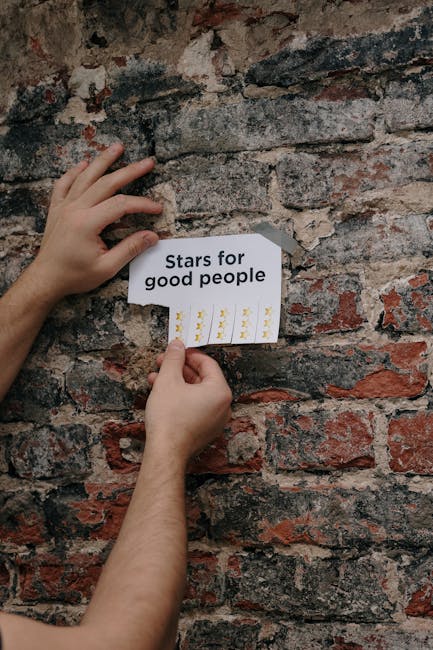Building connections with others doesn’t always require grand gestures or elaborate plans. Sometimes, the simplest acts of kindness can create the strongest bonds. A smile, a helping hand, or a heartfelt compliment can ripple through lives, leaving warmth and goodwill in their wake. But why does kindness hold such power, and how can it transform relationships? Let’s explore the magic behind it.
Key Takeaways
- Kindness strengthens emotional bonds and fosters trust in relationships.
- Small, thoughtful actions can have a profound impact on mental health and happiness.
- Communities thrive when kindness becomes a shared value.
- Practicing kindness daily can create a ripple effect, inspiring others to follow suit.
Introduction to Building Connections Through Acts of Kindness
Definition and Importance of Kindness in Relationships
Kindness is the glue that holds relationships together. It’s the act of showing care, compassion, and understanding toward others. Whether it’s a friend, family member, or stranger, kindness bridges gaps and builds trust.
In relationships, kindness acts as a foundation. It’s what turns acquaintances into friends and friends into family. Without it, connections can feel hollow or transactional.
How Kindness Fosters Deeper Emotional Bonds
When someone shows kindness, it creates a sense of safety and belonging. Imagine a friend who remembers your favorite coffee order or a neighbor who helps shovel your driveway after a snowstorm. These small gestures show thoughtfulness, making the recipient feel valued.
Kindness also encourages vulnerability. When people feel safe, they’re more likely to open up, share their feelings, and deepen their emotional connections.
Overview of the Ripple Effect Created by Acts of Kindness
Kindness is contagious. One act can inspire another, creating a chain reaction. For instance, a simple compliment might brighten someone’s day, prompting them to pass on the positivity. Over time, these ripples can transform entire communities into more compassionate spaces.

The Psychological and Emotional Benefits of Kindness
Positive Impact on Mental Health for the Giver
Boosting Self-Esteem and Happiness
Did you know that helping others can make you happier? Studies show that acts of kindness release endorphins, the brain’s “feel-good” chemicals. It’s like a natural high that boosts self-esteem and creates a sense of purpose.
Reducing Stress and Anxiety
Kindness can also lower stress levels. When you focus on helping others, it shifts your attention away from personal worries. This mental break can reduce anxiety and promote a calmer state of mind.
Emotional Benefits for the Receiver
Feeling Valued and Supported
For the recipient, kindness is a reminder that they matter. A thoughtful gesture, like checking in on a friend during tough times, can make them feel seen and supported.
Encouraging a Sense of Belonging
Kindness fosters inclusion. It tells people, “You’re not alone.” This sense of belonging is crucial for mental and emotional well-being, especially in today’s fast-paced world.

Simple Acts of Kindness That Strengthen Relationships
Everyday Gestures That Make a Difference
Offering a Listening Ear
Sometimes, all someone needs is for you to listen. No advice, no solutions—just your undivided attention. This simple act can make people feel heard and understood.
Expressing Gratitude and Appreciation
A heartfelt “thank you” can go a long way. Whether it’s for a small favor or ongoing support, expressing gratitude strengthens bonds and shows you don’t take others for granted.
Thoughtful Actions to Build Trust and Communication
Helping with Small Tasks or Favors
Offering to help with errands or chores might seem minor, but it speaks volumes. It shows you’re willing to invest time and effort into the relationship.
Celebrating Milestones and Achievements
Acknowledging someone’s achievements, whether big or small, is a powerful way to show you care. Celebrate their wins, and they’ll feel your pride and support.

Creating a Culture of Kindness in Communities
Encouraging Kindness in Social Groups
Leading by Example
Kindness starts with you. When you model compassionate behavior, others are more likely to follow suit. It’s like planting seeds of positivity that grow over time.
Organizing Group Activities Focused on Giving Back
Community service projects, like food drives or neighborhood cleanups, bring people together for a common cause. These activities not only help others but also strengthen bonds within the group.
The Role of Kindness in Bridging Gaps and Fostering Empathy
Understanding Diverse Perspectives
Kindness encourages us to step into someone else’s shoes. By showing compassion, we can better understand different perspectives and experiences.
Building Connections Across Cultural or Social Divides
In a world that often feels divided, kindness can be a unifying force. It breaks down barriers and reminds us of our shared humanity.

The Ripple Effect of Random Acts of Kindness
How Small Gestures Inspire Others to Act Kindly
Stories of Kindness Spreading Within Communities
Take, for example, a story shared on LinkedIn. A single act of generosity inspired an entire community to pay it forward, creating a wave of goodwill.
The Cumulative Impact of Collective Kindness
When kindness becomes a habit, its impact multiplies. Imagine a workplace where everyone supports each other or a neighborhood where people look out for one another. These small actions add up, creating a more connected and compassionate world.
Unexpected Connections Formed Through Random Acts
Strengthening Bonds with Strangers
A random act of kindness, like paying for someone’s coffee, can spark unexpected connections. These moments remind us that even strangers can make a difference in our lives.
Creating Lasting Memories Through Meaningful Interactions
Kindness often leaves a lasting impression. Years later, people may forget your words but remember how you made them feel.
Practical Tips for Incorporating Kindness into Daily Life
Setting Personal Goals for Acts of Kindness
Keeping a Kindness Journal
Track your acts of kindness in a journal. Reflecting on these moments can inspire you to keep spreading positivity.
Reflecting on Opportunities to Help Others
At the end of each day, think about ways you could have been kinder. This practice helps you stay mindful and intentional.
Overcoming Barriers to Practicing Kindness
Addressing Fear of Rejection or Judgment
Worried about how your kindness will be received? Remember, most people appreciate thoughtful gestures, even if they don’t show it immediately.
Finding Balance Between Giving and Self-Care
Kindness shouldn’t come at the expense of your well-being. Set boundaries and ensure you’re taking care of yourself, too.

Conclusion: The Power of Kindness in Building Connections
Recap of the Benefits of Kindness for Individuals and Communities
Kindness isn’t just good for others—it’s good for you, too. It strengthens relationships, improves mental health, and creates a sense of community.
Encouragement to Take Small Steps Toward Fostering Kindness Daily
Start small. Compliment a coworker, hold the door open for a stranger, or call a loved one to check in. These little actions can snowball into something much bigger.
Final Thoughts on the Transformative Potential of Kindness in Relationships
Kindness is a superpower we all possess. It has the ability to heal, connect, and transform. So, why not use it? After all, the world could always use a little more kindness.
For more insights on fostering meaningful relationships, check out this guide on how small acts of kindness can deepen connections. Or explore this article to see how kindness can bridge divides in communities.
Let’s make kindness a habit—one act at a time.
FAQ: Building Connections Through Acts of Kindness – Your Guide to Meaningful Relationships
What does ‘building connections through acts of kindness’ mean?
It refers to forming meaningful relationships with others by showing compassion, empathy, and generosity. Small acts of kindness can foster trust, understanding, and a sense of community, helping to strengthen bonds with those around us.
Why are acts of kindness important for building connections?
Acts of kindness create a positive ripple effect, encouraging mutual respect and goodwill. They help break down barriers, foster empathy, and build a sense of belonging, which are essential for forming strong and lasting relationships.
What are some simple acts of kindness I can do to connect with others?
Simple acts like offering a genuine compliment, helping someone with a task, listening attentively, or even smiling at a stranger can go a long way. These gestures show care and can open the door to deeper connections.
Can acts of kindness improve mental health?
Yes, performing acts of kindness has been shown to boost mood, reduce stress, and increase feelings of happiness and satisfaction. It benefits both the giver and the receiver, creating a positive emotional cycle.
How can I encourage acts of kindness in my community?
You can start by leading by example, organizing community events, or creating initiatives like kindness challenges. Sharing stories of kindness and recognizing others’ efforts can also inspire more people to participate.
Are there cultural differences in how kindness is expressed?
Yes, cultural norms and traditions influence how kindness is shown. For example, some cultures may emphasize verbal expressions of kindness, while others focus on actions. Understanding these differences can help build connections across diverse groups.
How do acts of kindness impact workplace relationships?
In the workplace, kindness fosters collaboration, reduces conflicts, and improves morale. Simple gestures like acknowledging a colleague’s efforts or offering help can create a supportive and productive environment.
What role does gratitude play in building connections through kindness?
Gratitude strengthens the impact of kindness by acknowledging and appreciating the efforts of others. Expressing gratitude not only deepens relationships but also encourages a cycle of positive interactions.
Can acts of kindness help resolve conflicts?
Yes, kindness can defuse tension and create an atmosphere of understanding and cooperation. A kind gesture or word can pave the way for open communication and mutual resolution of conflicts.
How can I make kindness a habit in my daily life?
Start small by setting daily intentions to perform acts of kindness. Reflect on your actions and their impact, and gradually incorporate kindness into your routine. Over time, it will become a natural part of your interactions.



